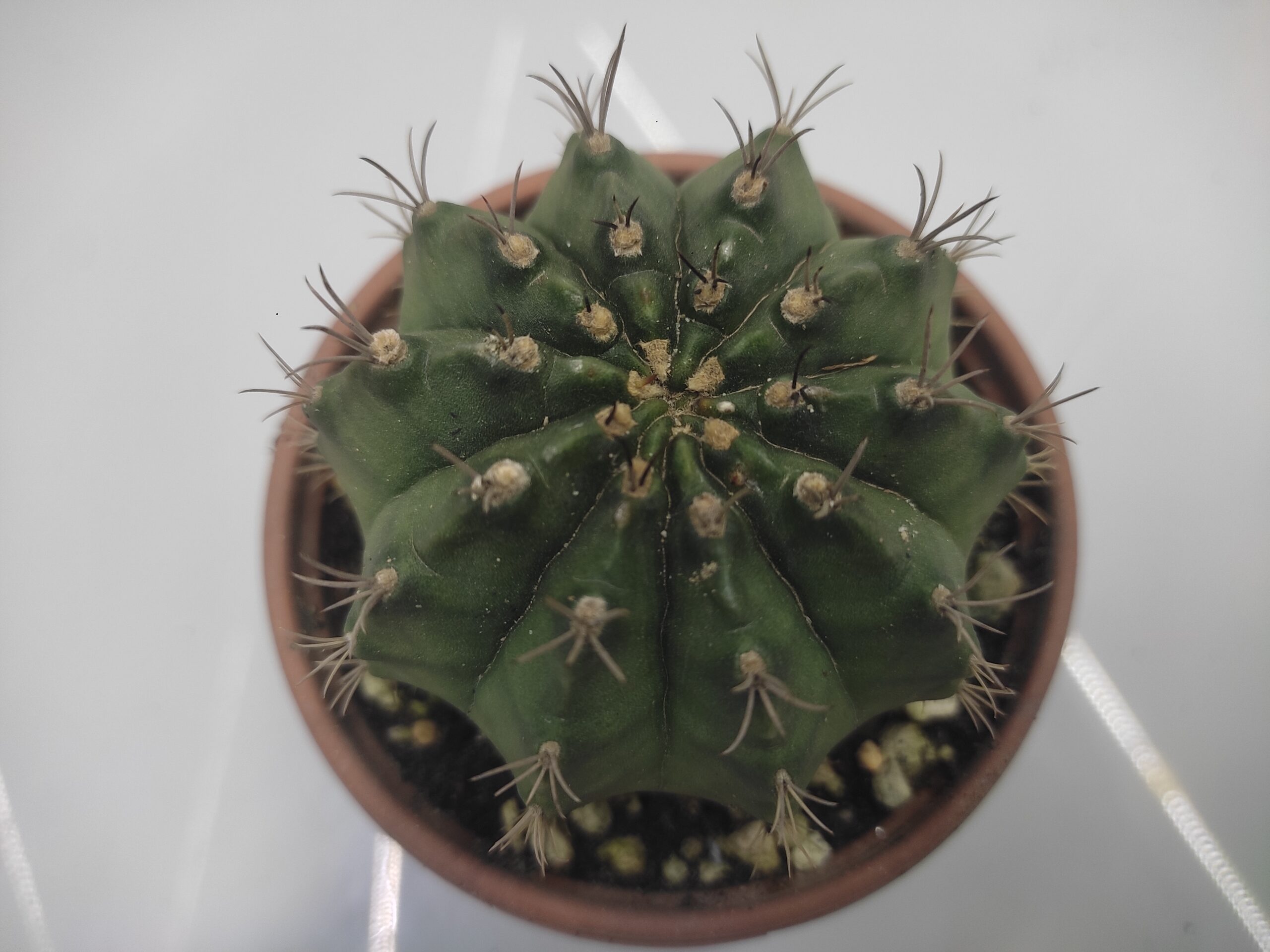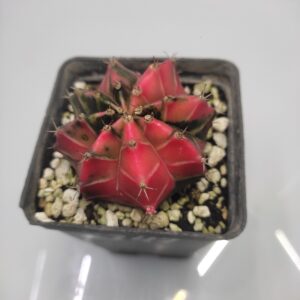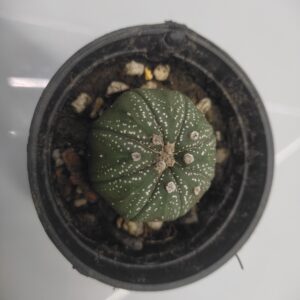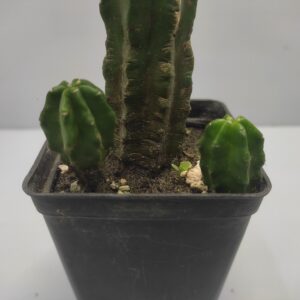Echinopsis oxygen:
Echinopsis oxygona, also known as the Easter Lily Cactus, is a popular succulent native to South America. It features globose to short cylindrical stems with clusters of stout spines and ribbed surfaces. This cactus is renowned for its large, fragrant, night-blooming flowers in shades of pink, white, or lavender. Echinopsis oxygona thrives in well-draining soil and bright, indirect light, making it a low-maintenance yet visually captivating addition to any garden.
Physical Characteristics of Echinopsis oxygen:
-
Growth Habitat of Echinopsis oxygen: :
Echinopsis oxygona is a globular to cylindrical cactus that can grow up to 30 cm (about 12 inches) tall and can reach a diameter of 15 cm (approximately 6 inches). It often forms clusters of stems.
-
Ribs and Spines of Echinopsis oxygen::
The cactus features 10 to 15 prominent ribs, which give it a distinctive appearance. The ribs are typically smooth and well-defined. The spines are short, usually measuring around 1 to 2 cm long, and can be either straight or slightly curved, with a color range from white to yellowish or reddish.
Flowers of Echinopsis oxygen::
- Blooming Season of of Echinopsis oxygen:: The flowers of Echinopsis oxygona are one of its most captivating features. They usually bloom in late spring to early summer, often opening in the evening and closing by the next day.
- Flower Characteristics: The flowers are large, funnel-shaped, and can reach up to 20 cm (about 8 inches) in length. They are typically white or pale pink, with a delicate fragrance that attracts pollinators, particularly moths. The inner petals are often adorned with a contrasting color, adding to their visual appeal.
Fruit of Echinopsis oxygen::
- After flowering, Echinopsis oxygona produces small, round, green fruits that are edible but not commonly consumed. These fruits can be a source of seeds for propagation.
Cultivation:
Echinopsis oxygona is popular among cactus enthusiasts and is often grown in gardens and as a houseplant. It thrives in well-draining soil and requires bright, indirect sunlight. During the growing season, it benefits from regular watering, allowing the soil to dry out between waterings. In winter, it should be kept drier and cooler to mimic its natural dormant period.
Habitat:
In its native habitat, Echinopsis oxygona typically grows in rocky, well-drained soils in arid and semi-arid environments. It is adapted to withstand drought conditions but can also tolerate brief periods of rain.
Uses:
Beyond its ornamental value, Echinopsis oxygona is sometimes used in traditional medicine by indigenous peoples in its native range. The plant is also appreciated for its aesthetic qualities in landscaping and container gardening.








Reviews
There are no reviews yet.